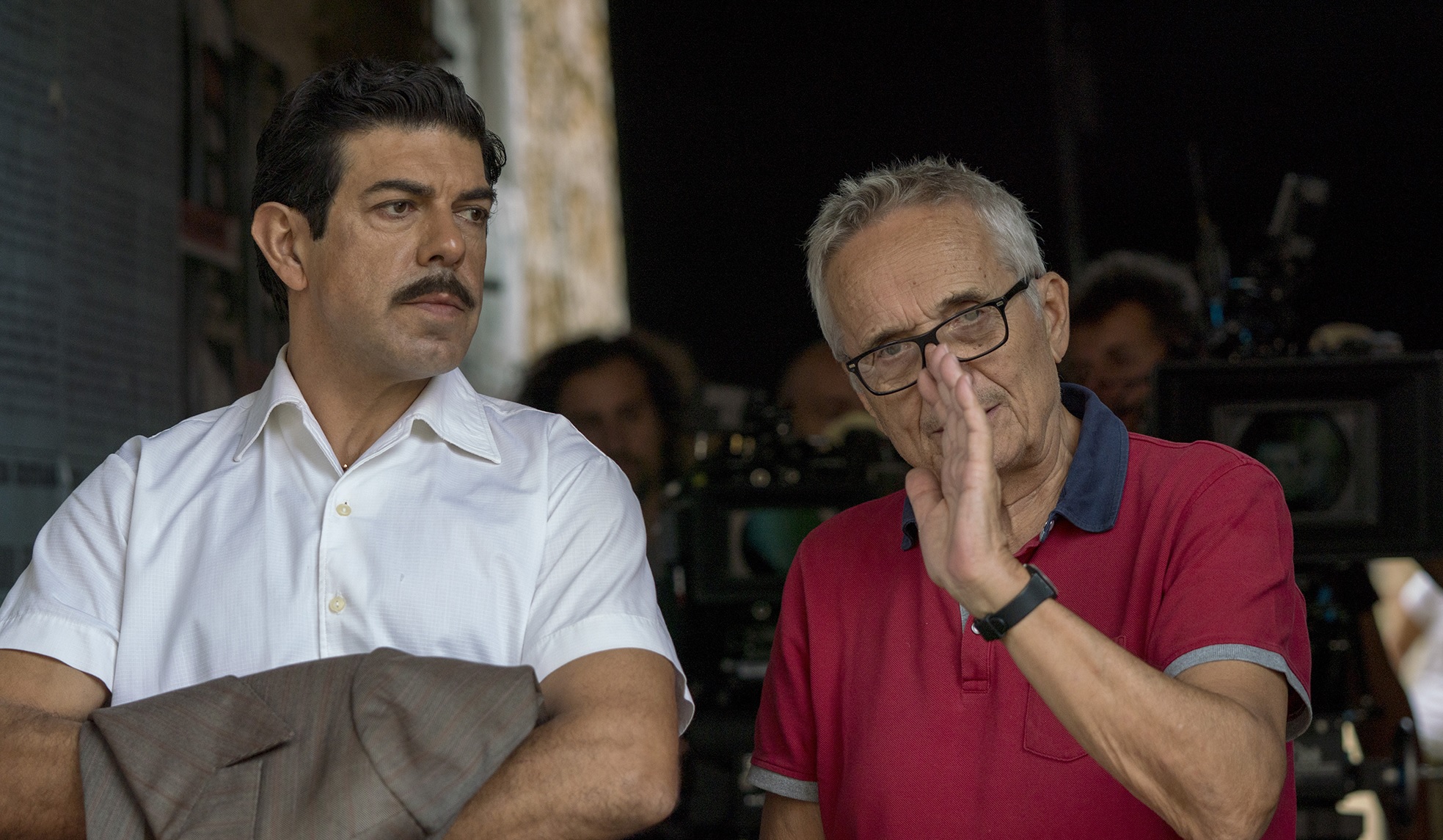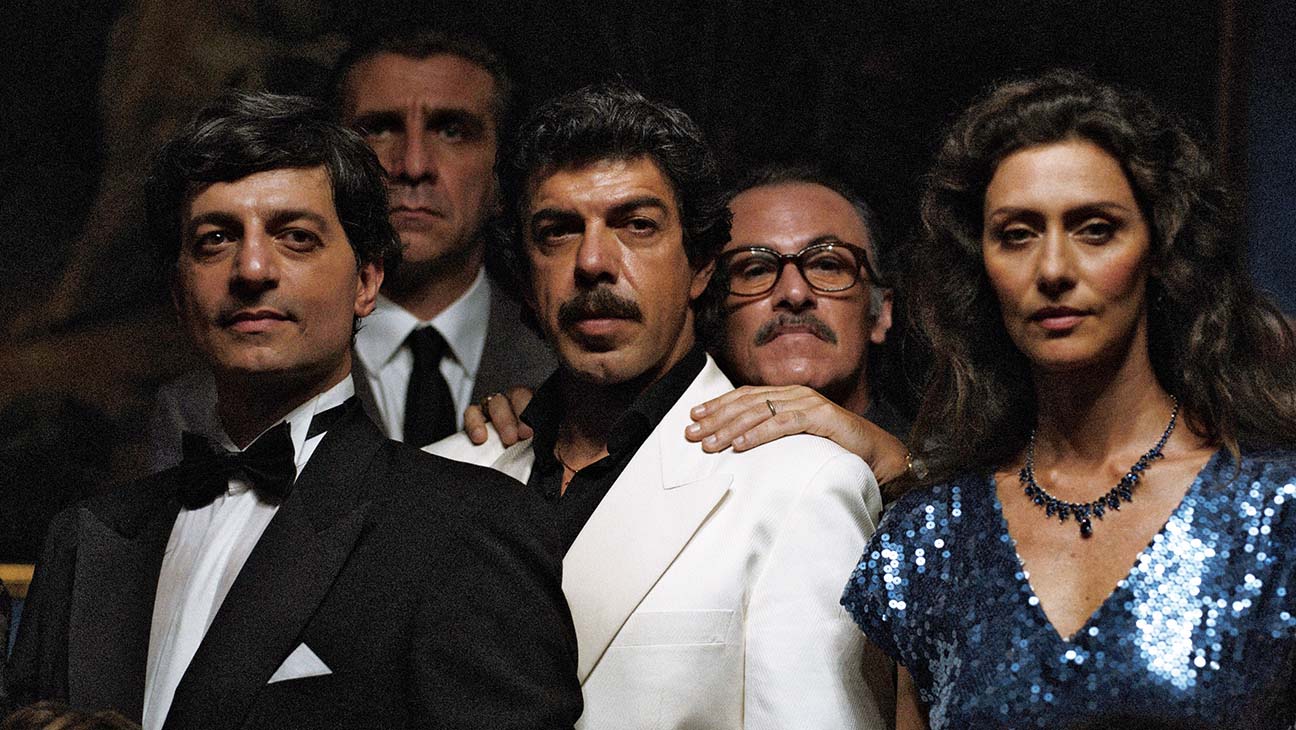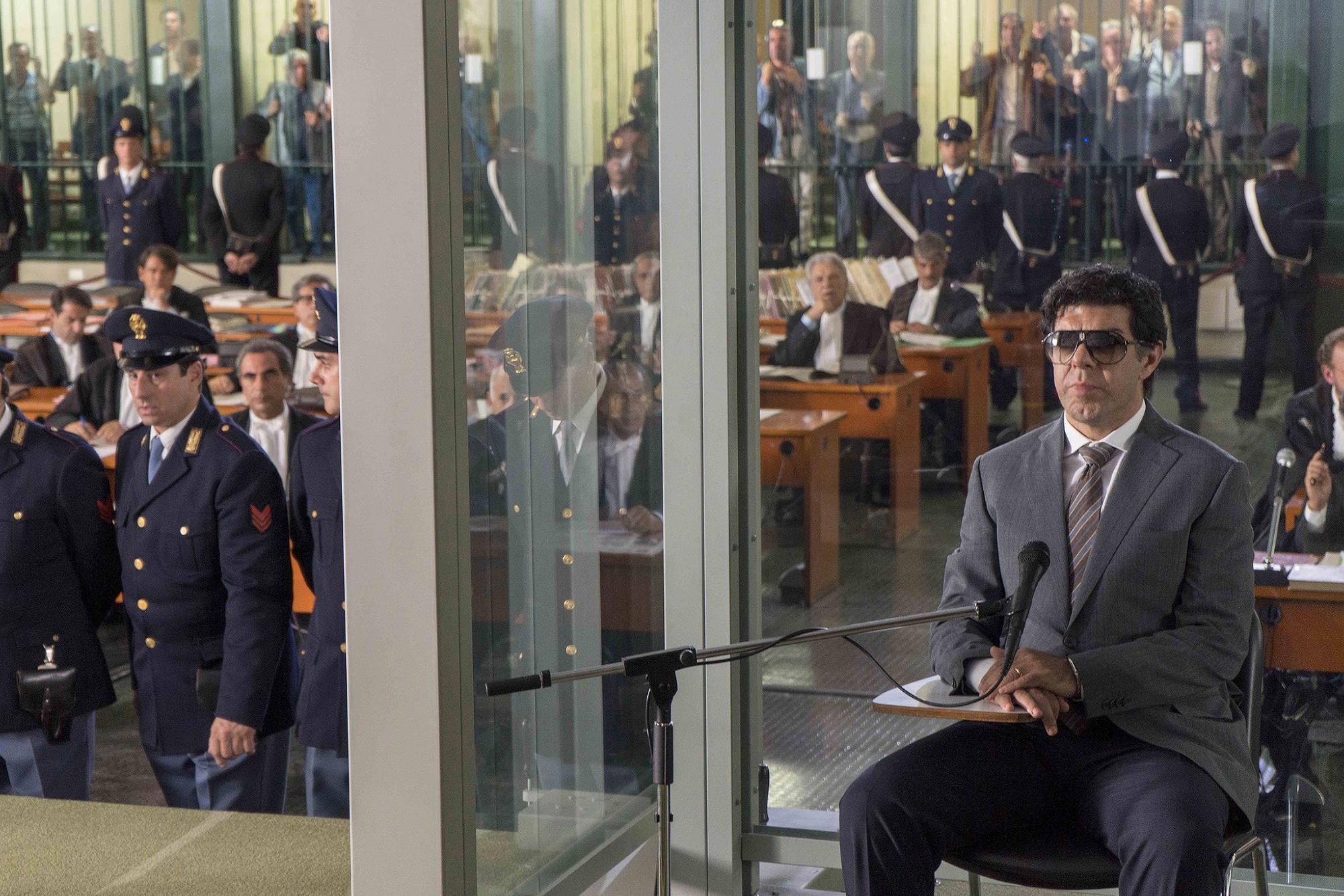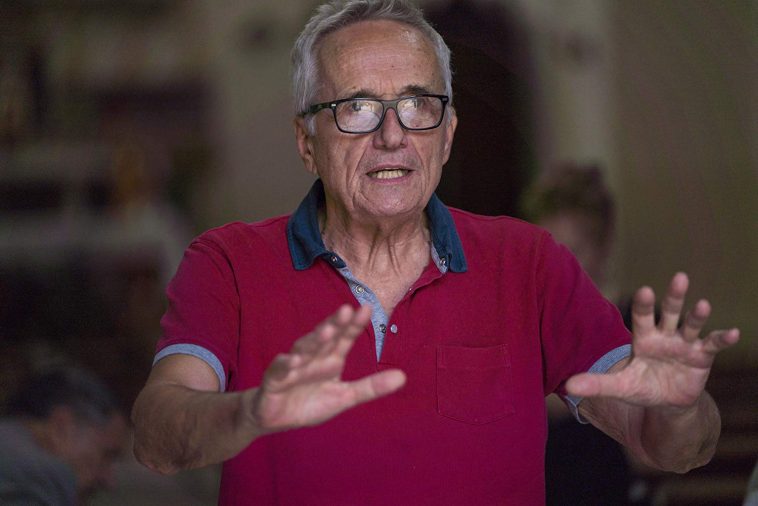Leant back in his chair, as his lengthy, considered answers are being interpreted into English for me to understand, Marco Bellocchio opens up a book written all about him, and skims through the pages. It’s a retrospective brochure that is looking back across his career, and he flicks through nonchalantly. This is exactly what we had hoped for from this venerable filmmaker.
Does he ever pause and look back, we ask. “It happens during interviews, or during retrospectives, that gives me the chance of looking back,” Bellocchio says. “I’m very critical towards myself when I look back at my work, the things I notice the most are what I define as being mistakes, things I would do differently on another day. But on the other hand I don’t really dwell that much on that, and if I want to talk about this one in particular then yes this is a film about the mafia and maybe there will never be another film about the mafia that I do, because I really like to explore different themes and different stories.”

It’s unlikely he’ll look back on The Traitor – his latest production – with anything but fondness, such is the richness to this tale, which we saw during the London Film Festival. Telling the remarkable true story of Tommaso Buscetta (Pierfrancesco Favino), who famously risked everything to become an informant on the Sicilian mafia in the 1980s. In spite of the film’s title, it takes a vitally impartial look into proceedings, but we wanted to know whether Buscetta was considered a traitor or a hero within the Italian media.
“Well, neither really,” said Bellocchio. “Because the Italian media was quite aware of his criminal past, and we’re not talking about light crimes, but drug trafficking, and a really violent past. But by the same token they had some sympathy for the killings that surrounded his family. About ten people in his close family were killed by the mafia, what the character of Buscetta had was, because it was seen as being part of Falcone’s entourage, he was perceived as a total hero, then because he was collaborating with Falcone maybe a certain feeling of sympathy percolated through.”

“But first and foremost, the character was seen as a key figure in the overall fight against the mafia and the very first chance that they were going after the overall structure and not individual crimes. From the North of Italy, obviously people were happy he was collaborating and the concept of being a traitor was not just adopted by the mafiosi but by the population at large in Sicily, because you just do not collaborate with the State, to the point that during my recent research into the subject, it emerged that being a ‘Buscetta’, being accused of being a ‘Buscetta’, became an insult in Sicily at the time. You’d be doing a ‘Buscetta’ if you told on anyone. You do not speak about, you do not collaborate, not even on violent crimes, they still have to be sorted out internally, never externally.”
Well if being called a ‘Buscetta’ is an insult, we’d bet that calling someone a ‘Bellocchio” would be considered something of a compliment, such is the work this almost-80-year-old filmmaker has put out across his illustrious career. And yet it’s only the second time he’s worked in Sicily. Naturally, we wanted to know what his favourite local dish was.

“The food is splendid but not one dish comes to mind that I would prefer to others,” he smiled. “There are lots of ugly things in Sicily, and nearly all man made, because obviously the nature is fantastic. But the one thing that really springs to mind is the language, it’s not usual Italian dialect, it’s a seperate language itself, and most of the actors were either Sicilians or had roots in Sicily so they were able to bring that level of truth. When I heard them talking to each other, sometimes you really do not get what they are saying, but it was fascinating to listen to this completely different language,” he finished.
AVAILABLE IN CINEMAS & VIA VIRTUAL THEATRICAL SCREENINGS ACROSS UK AND IRELAND FROM 24 JULY 2020







Leave a Comment